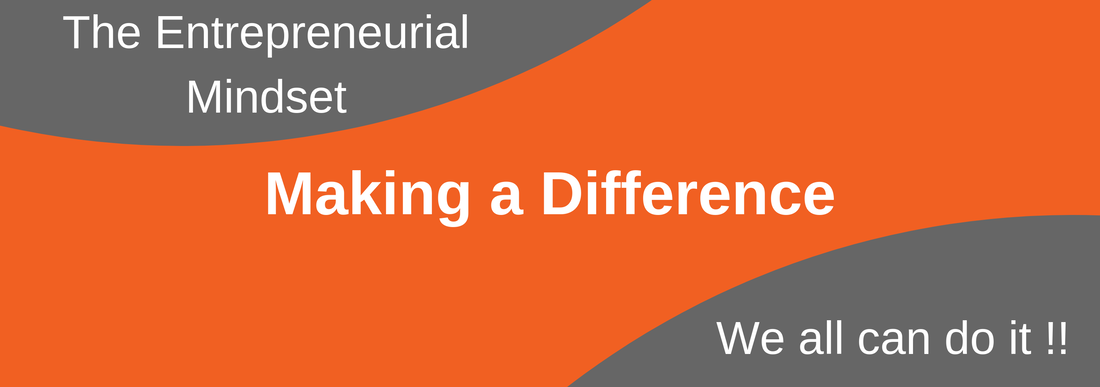Why this page?
People have been focused for too long on profit, growth of wealth, status and other things except for what is truly important: the world that we live in and the people we share it with.
it is time to change this! And many others agree with this and have already done a lot.
On this page I collected information from several sources that will help you see what is possible if you want to make a difference as well as examples that can inspire you to find the perfect way for you to contribute to a better world.
it is time to change this! And many others agree with this and have already done a lot.
On this page I collected information from several sources that will help you see what is possible if you want to make a difference as well as examples that can inspire you to find the perfect way for you to contribute to a better world.
Everyone can do something:
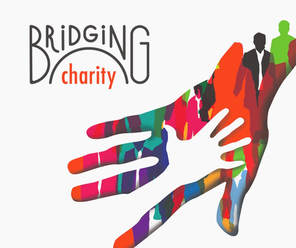
If you click the picture you will be transferred to a dedicated page on my website.
You ill see several events organized by me and other entrepreneurs with very little resources. This to prove to you that everyone can do something to make the world a better place for us all.
Clicking the different event pictures on that page will take you to pages detailing the work we did. Hopefully this will inspire you and give you ideas on what you can do on your own and in collaboration with others.
Please feel free to contact me if you want advice of would like to share your ideas and I may add them to this page.
You ill see several events organized by me and other entrepreneurs with very little resources. This to prove to you that everyone can do something to make the world a better place for us all.
Clicking the different event pictures on that page will take you to pages detailing the work we did. Hopefully this will inspire you and give you ideas on what you can do on your own and in collaboration with others.
Please feel free to contact me if you want advice of would like to share your ideas and I may add them to this page.
Founders Whose Companies Are Making a Big Difference in the World
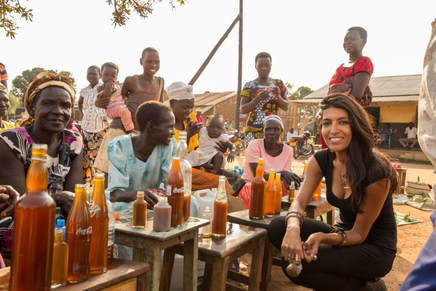
Leila Jana
Leila Janah is the founder of Samasource, a company that offers data solutions for projects that require human judgment. What's unique about this operation is that they establish work centers in developing regions like South Asia, Haiti and Africa and employ workers with little to no experience.
Their teams work on digital projects that can be broken down into smaller, more manageable tasks. These micro-work centers help employees earn a living wage and can fundamentally change the quality of their lives
Janah is an award-winning social entrepreneur.
Leila Janah is the founder of Samasource, a company that offers data solutions for projects that require human judgment. What's unique about this operation is that they establish work centers in developing regions like South Asia, Haiti and Africa and employ workers with little to no experience.
Their teams work on digital projects that can be broken down into smaller, more manageable tasks. These micro-work centers help employees earn a living wage and can fundamentally change the quality of their lives
Janah is an award-winning social entrepreneur.
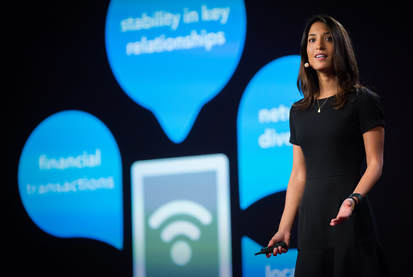
Shivani Siroya
Shivani Siroya is the CEO and founder of Inventure. Inventure uses mobile technology to collect 10,000 personal data points on users who might not otherwise be able to obtain funding for their projects without an established credit score. They help small businesses around the world -- primarily in developing regions -- get the capital they need, and instead of offering loans, they make investments.
Prior to Inventure, Siroya worked at UBS and Citigroup/ Healthnet, as well as the United Nations Population Fund.
Shivani Siroya is the CEO and founder of Inventure. Inventure uses mobile technology to collect 10,000 personal data points on users who might not otherwise be able to obtain funding for their projects without an established credit score. They help small businesses around the world -- primarily in developing regions -- get the capital they need, and instead of offering loans, they make investments.
Prior to Inventure, Siroya worked at UBS and Citigroup/ Healthnet, as well as the United Nations Population Fund.
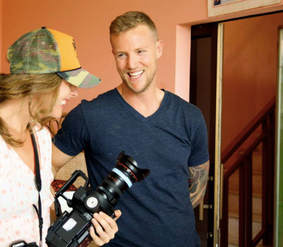
Taylor Conroy
Taylor Conroy is the founder of Change Heroes. They are a for-profit, for-impact tech company that utilizes a video-driven system to fund a variety of projects, including scholarships, anti-sex trafficking work, funding schools, volunteer travel and water projects.
Conroy launched Changed Heroes after a life-changing visit to Kenya. He sold his real estate business to found the friend-funding platform that has now raised well over $1,000,000 for various projects.
Taylor is a thought leader in social entrepreneurship and lectures at New York University.
Taylor Conroy is the founder of Change Heroes. They are a for-profit, for-impact tech company that utilizes a video-driven system to fund a variety of projects, including scholarships, anti-sex trafficking work, funding schools, volunteer travel and water projects.
Conroy launched Changed Heroes after a life-changing visit to Kenya. He sold his real estate business to found the friend-funding platform that has now raised well over $1,000,000 for various projects.
Taylor is a thought leader in social entrepreneurship and lectures at New York University.
For the original article by Thomas Smale with more examples click here.
Companies Making A Splash For A Better World
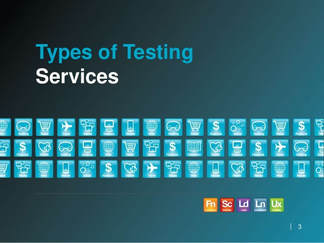
uTest
uTest is the world’s largest open community dedicated to professional testers and software testing. Its purpose is to promote and advance the testing profession and the people who do this vital work.
uTest has partnered with Per Scholas, an American nonprofit social venture committed to breaking the cycle of poverty by creating technology education, training, and career opportunities for low-income individuals.
As part of their agreement with uTest, Per Scholas students go through a rigorous 12-week training program on software testing, culminating in a real-world ‘sandbox’ testing project through uTest. The sandbox project allows these students to put their training into practice and receive feedback about their performance through team leaders and instructors.
If they perform well, uTest invites Per Scholas graduates to paid testing projects that can be performed remotely. This provides earning opportunity, but even more importantly, it provides real-world testing experience.
uTest is the world’s largest open community dedicated to professional testers and software testing. Its purpose is to promote and advance the testing profession and the people who do this vital work.
uTest has partnered with Per Scholas, an American nonprofit social venture committed to breaking the cycle of poverty by creating technology education, training, and career opportunities for low-income individuals.
As part of their agreement with uTest, Per Scholas students go through a rigorous 12-week training program on software testing, culminating in a real-world ‘sandbox’ testing project through uTest. The sandbox project allows these students to put their training into practice and receive feedback about their performance through team leaders and instructors.
If they perform well, uTest invites Per Scholas graduates to paid testing projects that can be performed remotely. This provides earning opportunity, but even more importantly, it provides real-world testing experience.
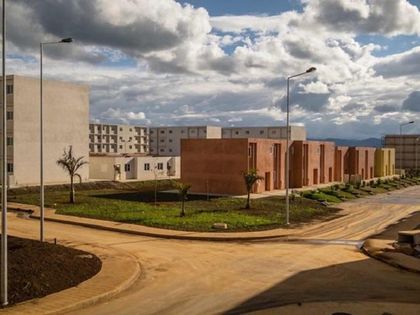
Vital Capital
Many companies looking to make the world a better place set their sights on Africa. Vital Capital is a leading impact investment fund, focused on sub-Saharan Africa. Vital is a leader in the field of Impact Investing -- targeting investments that produce healthy returns for investors and that also materially improve the quality of life of the communities in which it operates. Consequently, most of Vital Capital’s investments are in high-impact sectors such as affordable housing, renewable energy, water, healthcare, agriculture, and education, helping sub-Saharan Africa’s communities and countries to develop those elements which are essential conditions to sustainable growth.
As reported last year in Forbes, one of Vital Capital’s largest projects in Africa is Kora Housing (pictured), which is currently building 40,000 affordable housing units in Angola in cooperation with the Angolan Government.
Kora is building whole towns from the ground up: first, they clear the ground of landmines left over from the wars fought there. Then, the organization creates the infrastructure for a small city, including water, sewers, roads, and connection to the power grid -- or, in some cases, provide power from generators, all from scratch.
Each Kora community will include pre, primary, and secondary schools, as well as technical and vocational schools, medical clinics, and health centers, and plenty of green space. Vital has many other projects in Africa ranging from dairy farms to their Water For All (WFA) initiative. No doubt about it, Vital Capital is making a difference in Africa.
Many companies looking to make the world a better place set their sights on Africa. Vital Capital is a leading impact investment fund, focused on sub-Saharan Africa. Vital is a leader in the field of Impact Investing -- targeting investments that produce healthy returns for investors and that also materially improve the quality of life of the communities in which it operates. Consequently, most of Vital Capital’s investments are in high-impact sectors such as affordable housing, renewable energy, water, healthcare, agriculture, and education, helping sub-Saharan Africa’s communities and countries to develop those elements which are essential conditions to sustainable growth.
As reported last year in Forbes, one of Vital Capital’s largest projects in Africa is Kora Housing (pictured), which is currently building 40,000 affordable housing units in Angola in cooperation with the Angolan Government.
Kora is building whole towns from the ground up: first, they clear the ground of landmines left over from the wars fought there. Then, the organization creates the infrastructure for a small city, including water, sewers, roads, and connection to the power grid -- or, in some cases, provide power from generators, all from scratch.
Each Kora community will include pre, primary, and secondary schools, as well as technical and vocational schools, medical clinics, and health centers, and plenty of green space. Vital has many other projects in Africa ranging from dairy farms to their Water For All (WFA) initiative. No doubt about it, Vital Capital is making a difference in Africa.
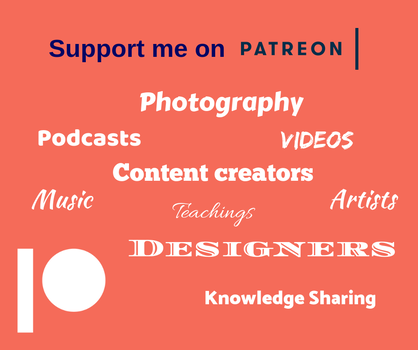
Patreon
"Support me on Patreon" This is what you hear mor and more on YouTube videos for example.
In 2013, YouTube musician Jack Conte was looking for a solution to his problem: millions of people loved his videos, but only hundreds of dollars were hitting his bank account. This didn’t add up, so he drafted up an idea (hey, we’re Patreon) and brought it to his college roommate Sam Yam, now co-founder of Patreon. In 2018 Patreon was the solution to this same problem for over 100 . 000 creators.
Follow and support me on Patreon here or create your own Patreon page.
"Support me on Patreon" This is what you hear mor and more on YouTube videos for example.
In 2013, YouTube musician Jack Conte was looking for a solution to his problem: millions of people loved his videos, but only hundreds of dollars were hitting his bank account. This didn’t add up, so he drafted up an idea (hey, we’re Patreon) and brought it to his college roommate Sam Yam, now co-founder of Patreon. In 2018 Patreon was the solution to this same problem for over 100 . 000 creators.
Follow and support me on Patreon here or create your own Patreon page.
Companies That Are Growing Rapidly While Doing Good
You don’t have to chose between making money or making a difference. Get inspired by the model of these rock stars of the new economy.

SUNGEVIT
Sungevity is part of a growing group of companies–including SunRun and SolarCity–that lease solar systems to customers, instead of forcing them to purchase the often-quite-expensive panels.
In 2011 the company has tripled its staff to 300 employees.
It has also installed solar panels on over 3,500 homes (generating 8,500 kW of power) since its founding in 2007.
See their vision and their achievements here.
Sungevity is part of a growing group of companies–including SunRun and SolarCity–that lease solar systems to customers, instead of forcing them to purchase the often-quite-expensive panels.
In 2011 the company has tripled its staff to 300 employees.
It has also installed solar panels on over 3,500 homes (generating 8,500 kW of power) since its founding in 2007.
See their vision and their achievements here.
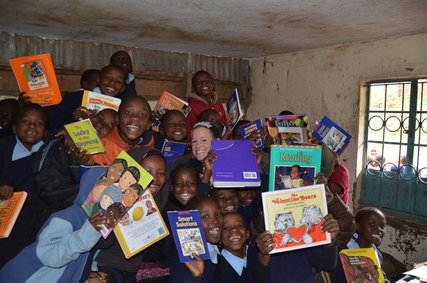
BETTER WORLD BOOKS
Better World Books collects and sells books that libraries and colleges are otherwise going to toss in the trash and sets aside part of each book sale for its nonprofit literacy partners, including Books for Africa, Room to Read, and Invisible Children (that last one may be questionable in light of recent discoveries). In the past five years, the company increased its revenue by five times, growing to $50 million in 2011. Better World Books has donated over 5 million books (for every book sold, a book is donated).
Better World Books collects and sells books that libraries and colleges are otherwise going to toss in the trash and sets aside part of each book sale for its nonprofit literacy partners, including Books for Africa, Room to Read, and Invisible Children (that last one may be questionable in light of recent discoveries). In the past five years, the company increased its revenue by five times, growing to $50 million in 2011. Better World Books has donated over 5 million books (for every book sold, a book is donated).
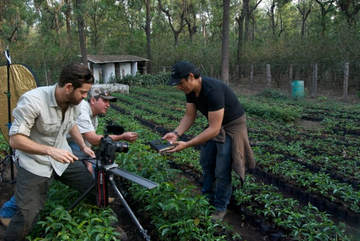
SUSTAINABLE HARVEST
A coffee importer that emphasizes transparency across the entire supply chain, Sustainable Harvest reached $76 million in revenue in 2011 (a rate of five times growth in the last five years).
It has also brought over $200 million to rural coffee farming communities over the past 15 years. And as we noted in a recent post, Sustainable Harvest is introducing the iPad to coffee farmers in an attempt to increase efficiency and trace-ability.
A coffee importer that emphasizes transparency across the entire supply chain, Sustainable Harvest reached $76 million in revenue in 2011 (a rate of five times growth in the last five years).
It has also brought over $200 million to rural coffee farming communities over the past 15 years. And as we noted in a recent post, Sustainable Harvest is introducing the iPad to coffee farmers in an attempt to increase efficiency and trace-ability.
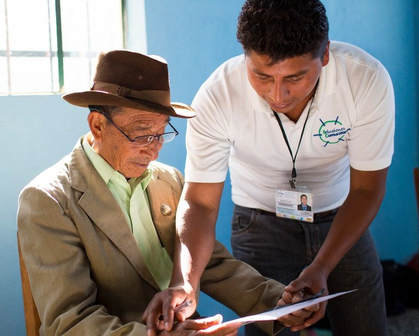
WARBY PARKER
Like Better World Books and Tom’s Shoes, Warby Parker uses the “one for one” model–for every pair of glasses sold, the company gives a pair to someone in need via its nonprofit partners. Founded in 2010, Warby Parker now has 50 employees and has given away over 100,000 pairs of glasses.
These six companies are obviously not the only ones doing well by doing good. They are all B Corporations, which are required to meet legal accountability, environmental, and social performance standards upheld by the nonprofit B Lab. Other notably successful B Corporations include Patagonia, Method, and RecycleBank. There are 517 B Corps in total, but plenty of successful and socially responsible companies have yet to join.
Regardless of whether they are B Corps or not, Lumini’s Vergara believes that it’s “essential for every business to have a purpose that can connect people, staff, customers and partners with that mission.” And if these businesses can make lots of money while doing that, even better.
Like Better World Books and Tom’s Shoes, Warby Parker uses the “one for one” model–for every pair of glasses sold, the company gives a pair to someone in need via its nonprofit partners. Founded in 2010, Warby Parker now has 50 employees and has given away over 100,000 pairs of glasses.
These six companies are obviously not the only ones doing well by doing good. They are all B Corporations, which are required to meet legal accountability, environmental, and social performance standards upheld by the nonprofit B Lab. Other notably successful B Corporations include Patagonia, Method, and RecycleBank. There are 517 B Corps in total, but plenty of successful and socially responsible companies have yet to join.
Regardless of whether they are B Corps or not, Lumini’s Vergara believes that it’s “essential for every business to have a purpose that can connect people, staff, customers and partners with that mission.” And if these businesses can make lots of money while doing that, even better.
9 ways companies are making a difference, Citigroup to SolarCity
Despite all the political and economical craziness in the world, some companies took the initiative to do their fair share of good deeds. Here are major ways companies gave back to the global community in 2016.
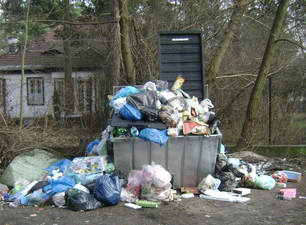
1. They tackled waste
Whole Foods partnered up with Imperfect Produce to address the growing food waste problem. In April, the company took a test drive through Northern California to check for flawed vegetables and fruits.
The Trash Trek challenge was launched at the FIRST* LEGO League Arabia Open, where kids in fourth and eighth grades were asked to research on issues related to waste management. Trash Trek asked the students to come up with their own solutions to waste reduction.
And Timberland’s new partnership with Thread, a B-corporation focused on responsible fabric, is working to recycle bottles into footwear. Both of these organizations are leading the way to tackle the waste problem in the U.S. while educating their employees and communities to invest in each other.
Whole Foods partnered up with Imperfect Produce to address the growing food waste problem. In April, the company took a test drive through Northern California to check for flawed vegetables and fruits.
The Trash Trek challenge was launched at the FIRST* LEGO League Arabia Open, where kids in fourth and eighth grades were asked to research on issues related to waste management. Trash Trek asked the students to come up with their own solutions to waste reduction.
And Timberland’s new partnership with Thread, a B-corporation focused on responsible fabric, is working to recycle bottles into footwear. Both of these organizations are leading the way to tackle the waste problem in the U.S. while educating their employees and communities to invest in each other.

2. They moved towards clean energy
In the summer of 2016, Elon Musk hinted that he might acquire SolarCity. The innovator stood by his words and presented the proposal in front of the board of Tesla Motors.
As a result, the $2.6 billion offer was finalized in August. The move is part of creating the largest clean-energy, vertically integrated company in the world. The company was quick to release plans proving how this move will help push towards cleaner energy in efforts to creating low-cost solar roofs, as well as powering an entire island with clean energy.
In the summer of 2016, Elon Musk hinted that he might acquire SolarCity. The innovator stood by his words and presented the proposal in front of the board of Tesla Motors.
As a result, the $2.6 billion offer was finalized in August. The move is part of creating the largest clean-energy, vertically integrated company in the world. The company was quick to release plans proving how this move will help push towards cleaner energy in efforts to creating low-cost solar roofs, as well as powering an entire island with clean energy.

3. They brought charitable causes online
With today's revolutionary online technologies, giving back has become a lot easier. Individuals and companies are more confident that every dollar they contribute will make a positive impact.
DoneGood, a browser extension that works with Firefox and Google Chrome, works in line with the same philosophy. The extension connects people to donation options during their online browsing experience, helping them make smarter shopping decisions. Apple Pay and YouTube furthered the cause by launching their own donation add-ons.
With today's revolutionary online technologies, giving back has become a lot easier. Individuals and companies are more confident that every dollar they contribute will make a positive impact.
DoneGood, a browser extension that works with Firefox and Google Chrome, works in line with the same philosophy. The extension connects people to donation options during their online browsing experience, helping them make smarter shopping decisions. Apple Pay and YouTube furthered the cause by launching their own donation add-ons.
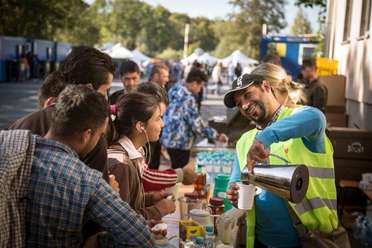
4. They helped refugees in crisis
The refugee crisis continues to be prevalent on a global scale.
With this in mind, companies are coming forward to do their part and help out people who need the assistance.
As part of this effort, Ikea created an in-store experience where it transformed one of its showrooms into a replica of what Syrian refugees now call a home.
The campaign helped to raise $24.3 million to support the Red Cross's efforts in Syria.
The refugee crisis continues to be prevalent on a global scale.
With this in mind, companies are coming forward to do their part and help out people who need the assistance.
As part of this effort, Ikea created an in-store experience where it transformed one of its showrooms into a replica of what Syrian refugees now call a home.
The campaign helped to raise $24.3 million to support the Red Cross's efforts in Syria.
With today's revolutionary online technologies, giving back has become a lot easier. Individuals and companies are more confident that every dollar they contribute will make a positive impact.

5. They promoted transparency in the food industry
San Diego-based Chicken of the Sea is working to promote transparency in terms of what consumers have on their dinner plates. The brand’s digital traceability initiative allows consumers to use a code to gain access to a wealth of information about where the fish contained in their food was caught, the method was used to catch it, the vessel it was caught in and other seafood sustainability factors.
San Diego-based Chicken of the Sea is working to promote transparency in terms of what consumers have on their dinner plates. The brand’s digital traceability initiative allows consumers to use a code to gain access to a wealth of information about where the fish contained in their food was caught, the method was used to catch it, the vessel it was caught in and other seafood sustainability factors.
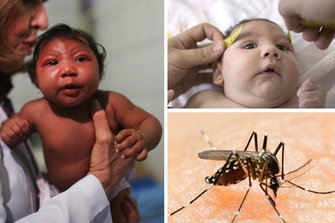
6. They fought Zika with data
Google recently made a $1 million contribution to a charity that supports the fight against the Zika virus. The tech giant also set up a team of engineers and data scientists at UNICEF to organize the virus research they collect and make it freely available online.
All you need to know about Zakia: where it is mos commonly caught, how to prevent it and what to do if infected: Zakia - CDC
Google recently made a $1 million contribution to a charity that supports the fight against the Zika virus. The tech giant also set up a team of engineers and data scientists at UNICEF to organize the virus research they collect and make it freely available online.
All you need to know about Zakia: where it is mos commonly caught, how to prevent it and what to do if infected: Zakia - CDC
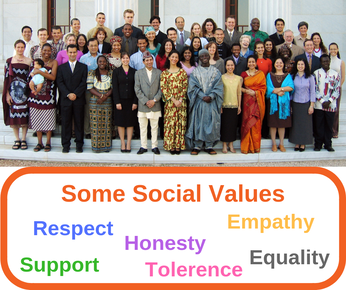
7. They promoted social values
Last year, PayPal announced that it would pull its Charlotte, North Carolina, Global Operations Center plans and took up to 400 jobs elsewhere. The company felt the state’s new legislation, the Public Facilities Privacy and Security Act, violated the rights of the LGBT community and, therefore, the company's own values.
At the same time, Salesforce CEO Marc Benioff raised his voice — and gave $3 million — towards promoting equal pay to all genders. He even went so far as pressuring other CEOs into making similar commitments to combat discrimination.
Last year, PayPal announced that it would pull its Charlotte, North Carolina, Global Operations Center plans and took up to 400 jobs elsewhere. The company felt the state’s new legislation, the Public Facilities Privacy and Security Act, violated the rights of the LGBT community and, therefore, the company's own values.
At the same time, Salesforce CEO Marc Benioff raised his voice — and gave $3 million — towards promoting equal pay to all genders. He even went so far as pressuring other CEOs into making similar commitments to combat discrimination.
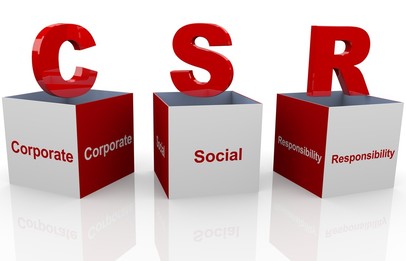
8. They transformed CSR
American nonprofit shoe brand, TOMS, donates a pair of shoes for every customer purchase. In 2016, the company and AT&T launched the "A Walk in Their Shoes" campaign following the story of a TOMS customer who travels from California to Colombia to meet the child who benefited from his purchase — it was also TOMS' first venture into virtual reality, giving philanthropy a futuristic edge.
American nonprofit shoe brand, TOMS, donates a pair of shoes for every customer purchase. In 2016, the company and AT&T launched the "A Walk in Their Shoes" campaign following the story of a TOMS customer who travels from California to Colombia to meet the child who benefited from his purchase — it was also TOMS' first venture into virtual reality, giving philanthropy a futuristic edge.
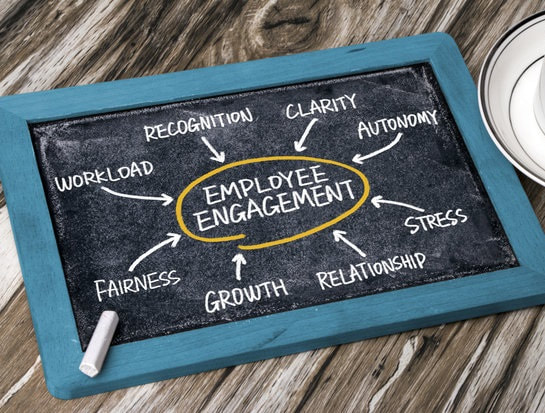
9. They bolstered employee engagement
Getting employees to give back to the community boosts loyalty and productivity. In 2016, Citigroup launched an immersive travel experience with the goal of attracting and retaining millennial talent. Under the program, junior bankers were allowed to be a part of a four-week microfinance project in Kenya. In New York, investment bank Meolis and Co. offered a four-week paid sabbatical to employees who had served five years with the company to pursue their passion.
It’s amazing how much can be done in just one year — and how much good news was buried under the uncertainty of 2016. The examples above are only the beginning of a momentous tide of corporate environmental and social consciousness. How are you going to make an impact in 2017?
Getting employees to give back to the community boosts loyalty and productivity. In 2016, Citigroup launched an immersive travel experience with the goal of attracting and retaining millennial talent. Under the program, junior bankers were allowed to be a part of a four-week microfinance project in Kenya. In New York, investment bank Meolis and Co. offered a four-week paid sabbatical to employees who had served five years with the company to pursue their passion.
It’s amazing how much can be done in just one year — and how much good news was buried under the uncertainty of 2016. The examples above are only the beginning of a momentous tide of corporate environmental and social consciousness. How are you going to make an impact in 2017?
Your contribution:
Please feel free to share with me, through the contact form what you are doing or planing to do as a contribution to a better world. I may include your response in this article!

